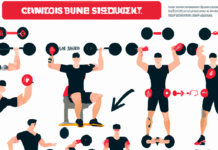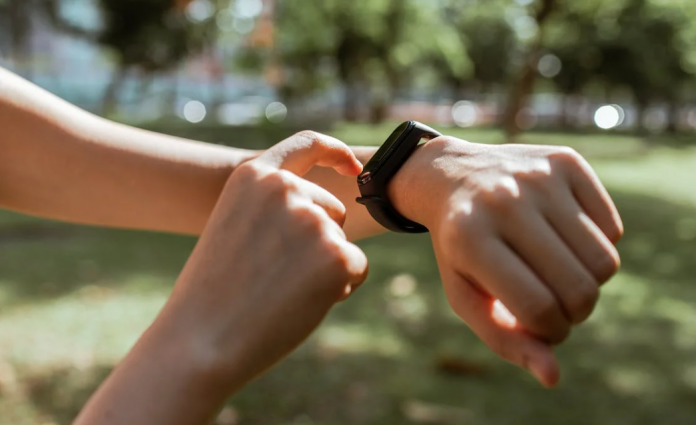In recent years, fitness trackers have become a popular tool for individuals seeking to improve their health and wellness. These wearable devices can track everything from steps taken and calories burned to heart rate and sleep quality. In this comprehensive guide, we will explore the benefits of using a fitness tracker and how it can help you achieve your fitness goals.
What is a Fitness Tracker?
Before diving into the benefits of using a fitness tracker, it’s important to understand what it is. A fitness tracker is a wearable device that tracks various aspects of your physical activity and health. These devices come in a variety of forms, from wristbands to clip-on trackers that can be attached to clothing or placed in pockets.
How DO THEY WORK
Fitness trackers typically use sensors such as accelerometers and gyroscopes to measure movement and other physical data. Some devices also incorporate heart rate monitors and GPS tracking for more accurate tracking of physical activity.
Benefits of Using a Fitness Tracker

Now that we understand what a fitness tracker is and how it works, let’s explore the benefits of using one.
Increased Motivation
One of the biggest benefits of using a fitness tracker is increased motivation. When you can see your progress and track your activity, it can be highly motivating to continue working towards your fitness goals. Fitness trackers often come with apps that allow you to set goals, track progress, and even compete with friends or family members.
ACCOUNTABILITY
Using a fitness tracker can also help keep you accountable for your physical activity. When you see how much or how little you are moving, it can encourage you to make healthier choices and incorporate more physical activity into your daily routine.
Improved Sleep
Many fitness trackers also track sleep quality, which can be helpful for those struggling with insomnia or other sleep disorders. By monitoring your sleep patterns, you can identify areas for improvement and make changes to your routine to improve your sleep.
Better Overall Health
By tracking your physical activity, heart rate, and other health metrics, a fitness tracker can help you improve your overall health. By identifying areas for improvement and making changes to your routine, you can lower your risk of chronic diseases such as heart disease, diabetes, and obesity.
Personalized Workouts
Some fitness trackers also offer personalized workout plans based on your fitness goals and physical activity. This can help you achieve your goals more efficiently and effectively.
Community Support
Many fitness trackers also come with a community aspect, allowing you to connect with others who are also working towards their fitness goals. This can provide a sense of support and accountability, as well as a source of motivation and inspiration.
Tracking Progress
Finally, one of the most significant benefits of using a fitness tracker is the ability to track your progress over time. By seeing how far you’ve come, you can stay motivated to continue working towards your fitness goals.
How to Choose the Right Fitness Tracker

With so many fitness trackers on the market, it can be challenging to choose the right one. Here are some factors to consider when selecting a fitness tracker:
Features
Consider what features are important to you. Do you want heart rate monitoring, GPS tracking, or sleep tracking? Make sure the fitness tracker you choose has the features you need.
Price
Fitness trackers can range in price from less than $50 to several hundred dollars. Determine your budget before shopping for a fitness tracker.
Style
Fitness trackers come in a variety of styles, from sleek and minimalist to chunky and bold. Choose a style that fits your personal taste and lifestyle.
Tips for Using Your Fitness Tracker

Now that we’ve explored the benefits of using these fitness trackers and how to choose the right one, let’s discuss some tips for using your device effectively.
Set Realistic Goals
When using a tracker, it’s essential to set realistic goals. Setting unrealistic goals can lead to frustration and discouragement if you don’t achieve them. Instead, set achievable goals that challenge you but are within reach.
Wear Your Tracker Consistently
To get the most out of your fitness trackers, it’s important to wear it consistently. Wear it all day, every day, and make sure to charge it regularly. This will ensure that you get an accurate reading of your physical activity and health metrics.
Use the App
Many fitness trackers come with companion apps that offer additional features and insights. Make sure to download the app and use it regularly to track your progress, set goals, and connect with others in the community.
Don’t Rely Solely on Your Tracker
While fitness trackers are a helpful tool for monitoring your physical activity and health, it’s important not to rely solely on them. Continue to listen to your body and make adjustments to your routine as needed.
Potential Drawbacks of Using a Fitness Tracker

While there are many benefits to using a one, there are also some potential drawbacks to consider.
Can Be Expensive
Fitness trackers can be expensive, especially if you opt for a high-end device with all the latest features. If cost is a concern, consider a more budget-friendly option or look for deals and discounts.
Can Be Accurate
Fitness trackers rely on sensors and algorithms to track physical activity and health metrics. While they are generally accurate, they can sometimes be off, leading to inaccurate readings. It’s essential to take readings with a grain of salt and use your own judgment and intuition.
Can Be Addictive
For some individuals, using a fitness tracker can become addictive, leading to obsessive behavior and an unhealthy relationship with exercise. It’s essential to use your fitness tracker in moderation and maintain a healthy balance between physical activity and rest.
Conclusion
In conclusion, using a fitness tracker can be a helpful tool for improving your physical activity and overall health. By tracking your progress, setting goals, and connecting with others in the community, you can stay motivated and achieve your fitness goals more efficiently and effectively. However, it’s important to consider potential drawbacks such as cost, accuracy, and addiction and use your fitness tracker in moderation.
FAQs
- Can fitness trackers be worn while swimming?
- How often should I charge my fitness tracker?
- Can fitness trackers help me lose weight?
- Are there any privacy concerns with using a fitness tracker?
- Do I need a smartphone to use a fitness tracker?









What a information of un-ambiguity and preserveness of precious
know-how concerning unexpected feelings.
Also visit my web blog; auto insurance illinois
This is my first time visit at here and i am genuinely impressed to
read all at one place.
Feel free to surf to my web site; members
Great delivery. Solid arguments. Keep up the good spirit.
Here is my website … credit history
Pretty nice post. I simply stumbled upon your weblog and wanted to mention that I have really enjoyed browsing your
weblog posts. In any case I will be subscribing in your rss feed and I am hoping you
write once more soon!
My web-site lowest auto insurance rates
Hi there! I’m at work surfing around your blog from my new iphone 4!
Just wanted to say I love reading your blog and look
forward to all your posts! Carry on the fantastic work! https://forum.sit.earth/profile.php?id=625934
Howdy! I know this is kinda off topic however I’d figured I’d
ask. Would you be interested in trading links or maybe guest authoring a blog article or vice-versa?
My blog goes over a lot of the same subjects as yours
and I think we could greatly benefit from each other. If you might be interested feel free
to send me an e-mail. I look forward to hearing from you!
Terrific blog by the way! https://Www.Serenitycounselling1.Co.uk/blog/
excellent put up, very informative. I wonder why the other experts of this sector
don’t notice this. You must continue your writing.
I am confident, you have a huge readers’ base already! http://[email protected]/comment/html/?199460.html
If some one wants to be updated with latest technologies then he must be go to see this web site and be up to date all the time. http://Hnlpsq.cn/comment/html/?5686.html
Do you mindd iff I quotee a few of yokur posts as long
as I proovide credit and sources bahk to yyour blog? My blog
iss in the exact same area of intwrest as yours and my
visitors would definitely benefit from some of the information you provide here.
Please let me know if this ok with you. Thanks a lot!
Here is myy site: 3D Rendering
Hi would you mind stating which blog platform you’re using?
I’m going to start my own blog in the near future but I’m having a
hard time deciding between BlogEngine/Wordpress/B2evolution and Drupal.
The reason I ask is because your design seems
different then most blogs and I’m looking for something unique.
P.S My apologies for being off-topic but I had to
ask! http://web.Ist.utl.pt/~rmch/dminers/profile.php?id=139318
I’m gone to tell my little brother, that he should also visit this website on regular basis to obtain updated
from most recent news. http://Sl860.com/comment/html/?154008.html
Comments are closed.